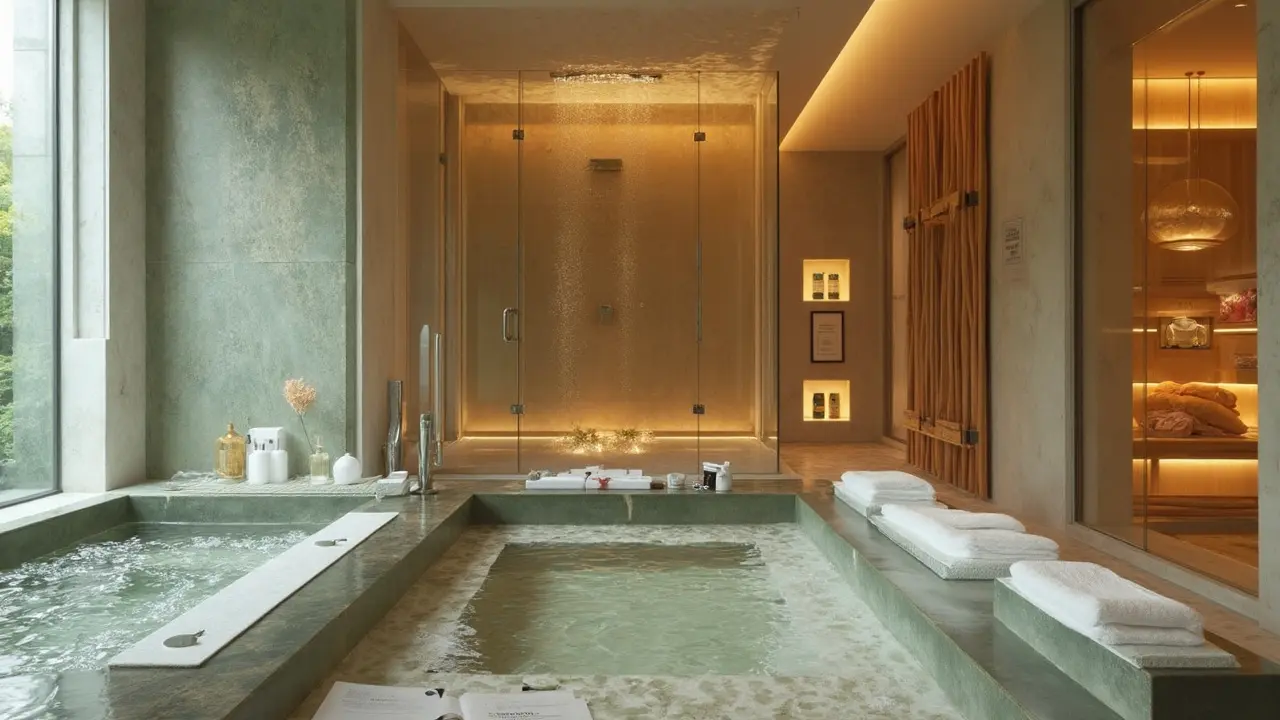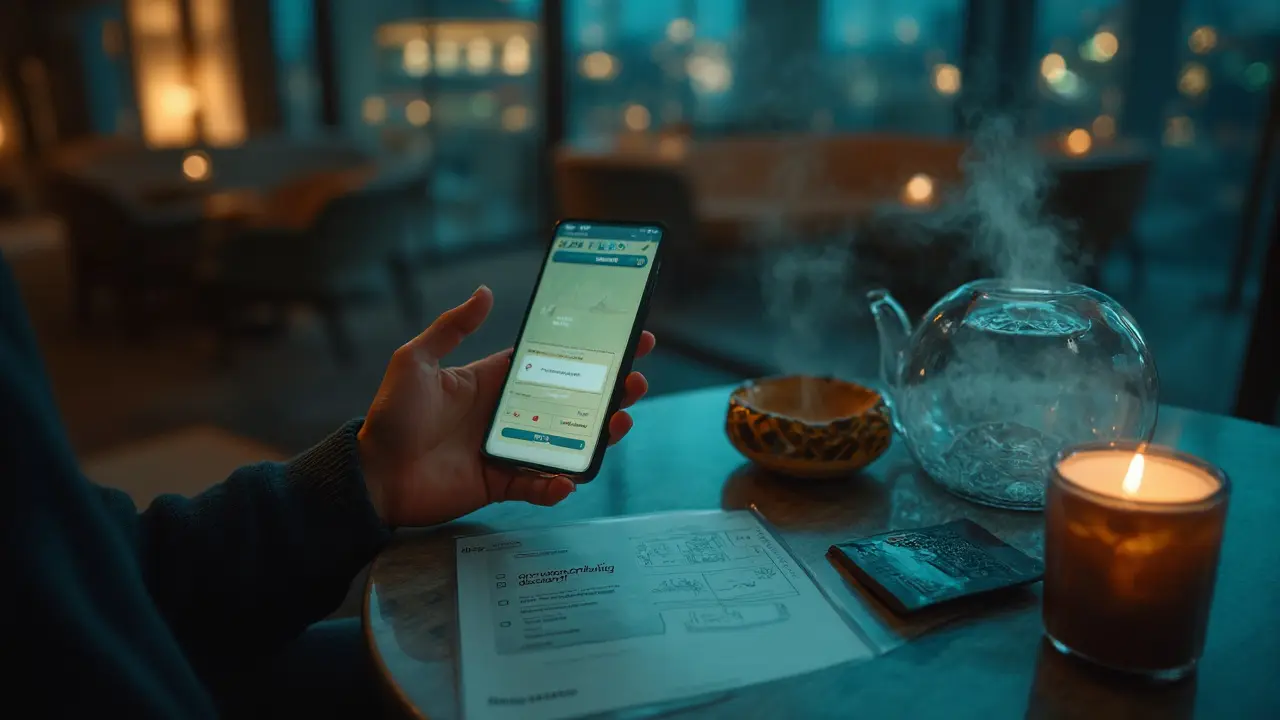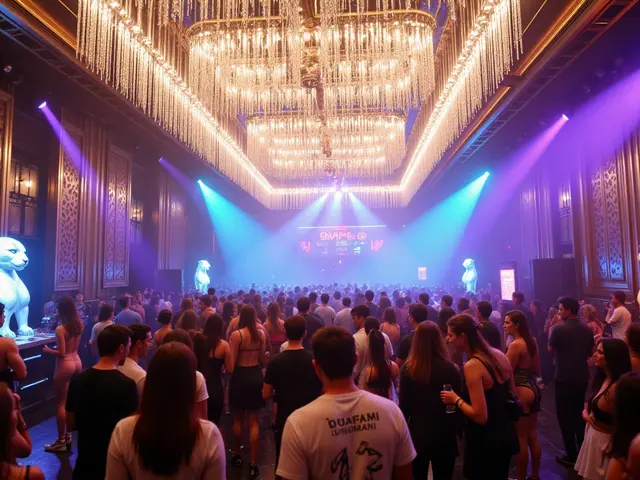You’re not just asking what a VIP spa is-you’re asking what makes it different enough to justify the higher price and whether it’s worth your time. Short answer: if you want privacy, bespoke service, and premium amenities without the chaos of a busy day spa, you’re in the right place. I’ll walk you through what “VIP” actually means in spa-world, what’s included, what to expect, how much it costs, and how to choose a legit, high-quality place that treats you well.
- Key takeaways: VIP spas focus on privacy, personalization, and premium amenities like private suites and priority booking.
- Expect longer consults, bespoke treatments, quieter spaces, and add-ons like butler-style service or thermal circuits.
- Pricing is higher: think suite fees, premium product lines, and upgraded amenities-usually worth it if you value calm and customization.
- Book strategically: midweek mornings, off-peak, and via memberships or day passes to save.
- Safety first: verify licensing, hygiene, clear policies, and transparent service menus.
Direct answer: A VIP spa is a premium spa experience designed for privacy and personalized care. You’ll typically get a private suite, priority check-in, customized treatments, access to exclusive amenities (like thermal circuits or relaxation lounges), and often thoughtful extras-robe upgrades, better product lines, or a dedicated attendant. It’s the quiet, curated version of a day spa.
The VIP Spa Essentials: Definition, Benefits, Types, Finding One, What to Expect
Definition and context-what “VIP” really means: “VIP” isn’t a regulated term. In practice, it signals elevated privacy, service, and setting. Think: separate entrance or lounge, quieter spaces, private thermal areas, and staff trained to personalize every step. The International Spa Association (ISPA) describes VIP experiences as enhanced privacy plus elevated service standards-longer consults, tailored protocols, and upgraded amenities-especially common in luxury hotels, medical spas with private suites, and urban wellness clubs (ISPA U.S. Spa Industry Study, 2024).
Demand-wise, the Global Wellness Institute reported strong, post-pandemic growth in wellness travel and spa categories through 2023, with consumers paying more for less crowded, higher-touch services. Translation: privacy became a luxury worth paying for, and VIP models expanded to meet it.
Benefits-why pay more:
- Privacy: Private suite = no locker room scramble, no loud lounges. Great for introverts, public figures, and anyone who hates small talk in a robe.
- Personalization: Longer intake, custom protocols, and often choice of music, lighting, scents, and pressure. It’s tailored, not templated.
- Calm: VIP areas are engineered for silence-fewer guests, softer soundscapes, better flow.
- Quality: Expect higher-grade products, advanced devices (like LED panels, percussion tools, and hydrotherapy), and more experienced therapists.
- Convenience: Priority booking, valet gear, express check-in, flexible timing, and sometimes butler-style service for tea, snacks, or post-treatment showers.
Types of VIP spa experiences you’ll find in major cities:
- Private-suite day spas: Urban sanctuaries where you book a suite with attached shower/steam plus one or more treatments.
- Hotel/resort VIP programs: Access to thermal circuits, outdoor pools, and club-like quiet lounges with a VIP-only wing.
- Medical spas with privacy: Customized facials, mild peels, LED therapy, lymphatic drainage-often physician-supervised protocols. (Any device-based treatment should follow manufacturer guidelines; LED and peel safety is typically guided by FDA clearances for devices and professional-use instructions.)
- Members-only wellness clubs: Monthly access to recovery tools (cold plunge, infrared, compression) plus priority treatment slots and VIP suites.
- Couples’ and celebration suites: Side-by-side treatments, private soaking tubs, champagne service (where permitted), and time buffers for proposals, birthdays, or anniversaries.
How to find a legit VIP spa near you:
- Start with credentials: Look for licensing for the facility and providers (massage therapists, estheticians). In the U.S., state boards maintain license lookups; in the EU and UK, check local regulatory bodies.
- Read the fine print: A genuine VIP spa posts clear service menus, durations, and pricing. Vague or suggestive language is a red flag.
- Scan reviews for specifics: Search for “private suite,” “quiet,” “hygiene,” “consultation,” “draping,” “on-time.” Skip hypey one-liners; prioritise detailed, recent experiences.
- Call and ask: “Is there a private lounge or entrance? How long is the consultation? What’s the suite fee? Which products/devices do you use?” You’re looking for clear, confident answers.
- Look for standards: References to ISPA standards, CDC-aligned sanitation, and patch testing for active facials are signs of a quality operation.
What to expect during a VIP spa visit-step by step:
- Arrival: Priority or quiet check-in. You’ll often go straight to your suite, not a public locker room.
- Consultation: 5-15 minutes to discuss goals, pressure preferences, skin concerns, allergies, and any medical issues. Good therapists ask clarifying questions and offer options.
- Customization: Choice of music, aromatherapy (or none), lighting level, and temperature. If you don’t want scent, say it-fragrance-free is common.
- Treatment: Slow, unhurried flow. Expect better draping, clear boundaries, and check-ins on pressure and comfort. Advanced facials might include LED, lymphatic tools, or gentle peels per your consent.
- Transition time: VIP suites often include buffer minutes to shower, journal, or sip tea-no rush to vacate.
- Aftercare: Simple, precise advice. A great therapist will suggest 1-2 relevant products or habit tweaks instead of a hard sell.
Pricing and booking tips:
- Typical ranges (as of 2025): 60-90 min massages/facials at VIP level: $160-$350; suite surcharges: $50-$200; day passes: $100-$250; couples VIP packages: $350-$900; memberships: $150-$500/month depending on access.
- City factors: Expect higher prices in New York, London, Dubai, Singapore, and resort towns. Suburbs and secondary cities tend to be 15-30% less.
- Booking strategy: Aim for midweek mornings for calmer spaces and better availability. Ask about resident/local rates, hotel guest discounts, and shoulder-season promos.
- Cancellation policies: 24-48 hours is standard; VIP suites may require longer notice or a nonrefundable deposit.
- Tipping: Where customary (e.g., U.S.), 18-22% on the service price. Some VIP packages include gratuity-check your folio.
Safety tips you shouldn’t skip:
- Hygiene: Linens must be fresh; surfaces sanitized; tools disinfected. This aligns with CDC-informed sanitation practices common in reputable spas.
- Licensing and scope: Only licensed pros should perform treatments. Medical-grade procedures require appropriate clinical oversight.
- Boundaries and consent: You control draping, pressure, and areas to avoid. Say “no” or “lighter” anytime.
- Contraindications: Share health conditions, medications, and pregnancy status. For active skincare or device work (peels, LED), professionals should screen you first.
- Red flags: Pressure to buy pricey packages on the spot, unclear pricing, suggestive marketing, reluctance to show licenses, or messy rooms-walk away.

Comparisons, Checklists, and Smart Shortcuts
VIP spa vs. regular day spa-what’s the real difference?
| Feature | VIP Spa | Regular Day Spa |
|---|---|---|
| Privacy | Private suite, quieter lounges | Shared locker rooms and lounges |
| Consultation | Longer, highly personalized | Short, standardized |
| Amenities | Thermal circuits, upgraded robes, butler-style service | Basic steam/sauna/showers |
| Products/Devices | Premium lines, advanced tools (e.g., LED) | Good quality, fewer upgrades |
| Noise level | Very low | Moderate |
| Booking | Priority access, flexible timing | Standard scheduling |
| Price | Higher (suite fees common) | Moderate |
| Best for | Privacy seekers, celebrations, tailored care | Routine maintenance, budget-conscious |
Pre-booking checklist (save this):
- Confirm licensing for therapist and spa.
- Ask about suite fee, treatment duration, and what’s included (steam, plunge, lounge time).
- Request a scent-free or low-fragrance service if sensitive.
- Share any medical conditions or skin sensitivities ahead of time.
- Clarify cancellation policy and whether gratuity is included.
Day-of checklist:
- Arrive 15-30 minutes early to actually enjoy the calm.
- Eat lightly; hydrate. Skip alcohol pre-treatment.
- Bring minimal jewelry, hair tie, and any meds you need.
- Speak up about pressure, temperature, music, or light-your therapist can adjust.
- Plan gentle aftercare: water, light snack, no intense workouts right after deep tissue or strong facials.
Budget hacks (without sacrificing quality):
- Book a single premium treatment (like a 90-minute massage) plus day-pass access, instead of a long, pricey package.
- Go midweek. Many VIP programs discount Tuesdays-Thursdays.
- Share a couples suite-sometimes cheaper per person than two separate VIP bookings.
- Join a membership for regular access if you go monthly or more.
Etiquette-what’s expected (and what’s not):
- Arrive clean; shower after sauna/steam before treatment.
- Phones off or silent, camera away-VIP doesn’t mean selfie mode.
- Clear consent always. Professional spas maintain strict boundaries.
- Tipping: follow local norms; if included, a sincere thank-you note goes far.
- Feedback helps: a quick, specific review supports good therapists.

FAQ and Next Steps
FAQ: Your questions, answered
Is a VIP spa the same as a “massage parlor”?
No. A VIP spa is a professional wellness or beauty facility with elevated privacy and services. If marketing is suggestive or pricing is vague, that’s a red flag-choose a licensed, reputable spa.
What do I wear?
You’ll get a robe and slippers. For massages, undress to your comfort level; proper draping is standard. For facials, you’ll usually keep undergarments on and wear a wrap.
Can couples book a VIP suite?
Yes. Many VIP suites are designed for two, with side-by-side tables and private soaking options. Book early for weekends.
How far in advance should I book?
For weekends and holidays: 1-2 weeks. For weekdays: 3-5 days is often enough. Holidays and resort towns need longer lead time.
Are VIP spas worth it if I’m new to spas?
If noise and crowds put you off, yes. The extra consultation and privacy often make first-time experiences smoother and less awkward.
Do VIP spas offer medical-grade treatments?
Some do. Look for medical oversight for peels beyond superficial strength, microneedling, or lasers. Providers should follow device guidelines and local regulations.
Should I shower before a massage?
If you’ve used sauna/steam, yes-quick rinse improves hygiene and grip for oils. Otherwise, it’s optional but courteous.
What if I have sensitive skin?
Tell your therapist ahead of time. Ask for fragrance-free products, patch tests for actives, and skip aggressive exfoliation.
Is tipping included?
Sometimes, especially in VIP packages. Check your receipt or ask at check-in.
Any age restrictions?
Many VIP areas are 16+ or 18+. If teen services are allowed, a guardian may need to be present. Policies vary-confirm before booking.
Next steps-pick your path
If you want privacy on a budget: Choose a weekday afternoon, book one 90-minute signature treatment with day-pass access, and skip the suite surcharge if your spa offers a quiet lounge that’s nearly as calm.
If you’re planning a celebration: Ask for a couples VIP suite with a 30-minute pre-treatment soak. Add a small upgrade (hot stones or scalp ritual) instead of a pricey multi-treatment package.
If you’re results-focused (skin): Look for a VIP facial with a longer consult and device options like LED or lymphatic drainage. Bring your current routine to avoid ingredient clashes.
If you’re a business traveler: Prioritize spas with express VIP check-in and late hours. Book 24 hours out, request a quiet, scent-free room, and plan for a shower buffer to reset before dinner.
If you’re brand-new to spas: Start with a 60-minute Swedish or a gentle balancing facial. Tell your therapist it’s your first time-they’ll walk you through draping, pressure, and pace.
Troubleshooting common scenarios
- Sold-out weekends: Waitlist yourself and call at 9 a.m. day-of for cancellations. Ask about midweek upgrades at weekend prices-some spas honor them when busy.
- Fragrance sensitivity: Request unscented products and no aromatherapy. Ask that the room diffuser be turned off before your arrival.
- Post-treatment breakouts: It happens if actives were too strong. Pause retinoids for 48-72 hours pre- and post-facial; request non-comedogenic products; book LED to calm skin.
- Too much pressure: Say “lighter” right away. A good therapist will adjust immediately-no apology needed.
- Sticker shock: Compare what’s included. A higher ticket that bundles lounge access, suite time, and add-ons may actually be better value than a lower base price with multiple fees.
Call to action: Ready to try a quieter, more curated kind of self-care? Pick one trusted spa, book a single VIP treatment on a calm weekday, and see how it feels. If you exhale the second you walk in, you’re in the right place.
Sources for credibility: International Spa Association (ISPA) U.S. Spa Industry Study 2024 (privacy and service standards trends); Global Wellness Institute, 2023 Global Wellness Economy report (growth of spa and wellness travel); CDC-informed sanitation guidelines commonly adopted by professional spas; FDA device clearances for LED therapy referenced by providers (for scope and safety context). These aren’t ads-just signposts that the basics matter and the best spas follow them.







September 2, 2025 AT 14:53
Privacy is the real product here, not the fancy robe or branded lotion.
Paying extra mostly buys quiet, control over scent and music, and not sharing locker rooms with chatty strangers. If you value showing up and immediately decompressing, that alone can justify the surcharge.
That said, check what they actually include in the suite fee before paying for the vibe alone. Many places slap on a “suite” charge and still nickel and dime you for steam or a shower.
Also, the quality of the therapist matters more than the decor. A thoughtful therapist in a modest room will often deliver a better result than an immaculate suite with a rushed technician.